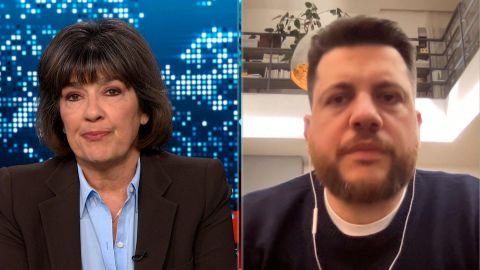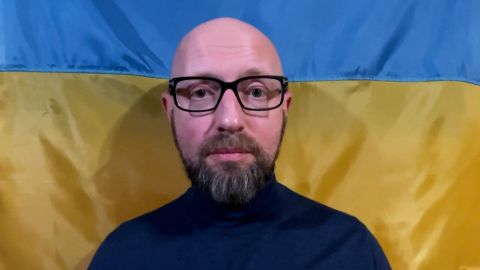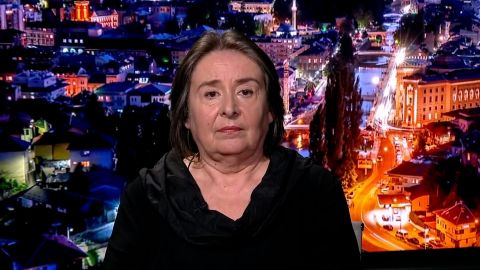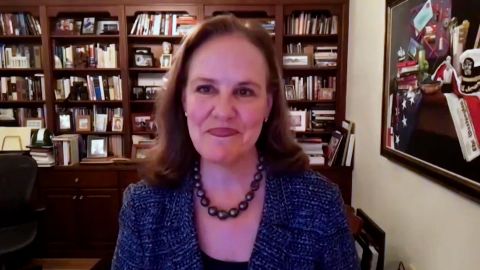Read Transcript EXPAND
CHRISTIANE AMANPOUR: We have asked you to read a little bit, an excerpt, if you wouldn’t mind doing that.
AIDA CERKEZ, BOSNIAN JOURNALIST: Sure. I have it here in just a second. I was thinking about what to send them, so I wrote this. “It’s not my warm socks or my jacket or my warm boots that you most need now. It’s my now 30-year-old T-shirt imprinted with a slogan that kept me up during the 1,425 days that Bosnian Serbs fired at will and held my city under siege with no water, no food, no electricity, no heating, and no communication with the outside world. “I wore that shirt and read its message as more than two million shells fell on our heads and I dodged countless bullets, but 11,000 of my neighbors didn’t. The T-shirt says, “Sarajevo will be. Everything else will pass. Bad times are ahead of you, my friends. But weapons are being sent so you can defend yourself the values you stand for. “We Bosnians fought back then for the same values. But the world imposed an arms embargo on us. It did not understand what the fight was about in Sarajevo. Thank God it understands now in Kyiv.”
AMANPOUR: Yes, it’s really powerful. And it is incredible when we all remember, when we went through and what you went through in Sarajevo, that now it is engaged, and it is really important for all of our futures, for all of our history. But I was also staggered by how the similarities — I mean, the pictures are almost identical 30 years later, the women, the children, the civilian infrastructure, the defenders. But, just like Bosnians, you never believed that the Serbs were going to launch a war on you. And nor did the Ukrainians really believe that the Russians were going to launch this war in such a big way. What is it about — about not believing the worst?
CERKEZ: I think you always think that this is going to happen to someone else, but not to me. It’s just — I always quote my mother. When war started in Slovenia, she was watching it on TV, and she said, oh, thank God it’s not here. This is terrible. Then it came to Croatia. And she repeated the same sentence. Then it crossed over into Bosnia and was already in Bijeljina in Bosnia, but not in Sarajevo. She still kept saying, my God, this is terrible. Thank God it’s not here. And then, at some point, it started. The shelling started just across the street on the building that we were facing. And I saw the smoke coming up. And she said the same sentence again. Oh, my God. Thank God it’s not here. And that’s when I realized, it’s — I guess it’s a defense mechanism.
AMANPOUR: Yes.
CERKEZ: You just don’t want to believe it. Hope dies last. The whole world saw what’s going to happen in Ukraine. But the Ukrainians just, you can’t comprehend it, just like Sarajevons.
About This Episode EXPAND
Ukraine’s former prime minister gives an update on the war. Leonid Volkov discusses Russian attitudes toward Putin. Journalist Aida Cerkez reflects on the parallels between the Bosnian War and the war in Ukraine. Former top defense official Michèle Flournoy explains the impact the crisis will have on America’s security interests, particularly when it comes to China.
LEARN MORE



